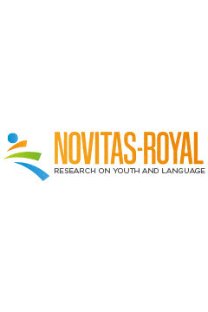Aday İngilizce Öğretmenlerinin Düşük Seviye Konuşma Yeterliği ve Geliştirilmesi için Öneriler
Pre-Service EFL Teachers’ Low-Level of Oral Proficiency and Suggestions for Enhancing It
___
- Bachman, L., & Palmer, A. S. (1996). Language testing in practice. Oxford: OUP.
- Baker, J., & Westrup, H. (2003). Essential speaking skills. London: Continuum and Voluntary Service Overseas.
- Bozorgian, H. (2012). The relationship between listening and other language skills in international English language testing system. Theory and Practice in Language Studies, 2(4), 657-663.
- British Council & Tepav (2013). Turkey national needs assessment of state-school English language teaching. Report presented to Ministry of National Education. Retrieved on from https://www.teachingenglish.org.uk/article/language-improvement-english-teachers
- Council of Europe. (2001). Common European framework of reference for languages: Learning, teaching, assessment. Cambridge, England: Cambridge University Press.
- Chen, Z., & Goh, C. (2011). Teaching oral English in higher education: challenges to EFL teachers. Teaching in Higher Education, 16(3), 333-345.
- Dinçer, A., & Yeşilyurt, S. (2013). Pre-service English teachers’ beliefs on speaking skills based on motivational orientations. English Language Teaching, 6(7), 88-95.
- Doff, A. (1998). Teach English: A training course for teacher. Cambridge University Press.
- Erarslan, A. (2018). Strengths and weaknesses of primary school English language teaching programs in Turkey: Issues regarding program components. Eurasian Journal of Applied Linguistics, 4(2), 325-347.
- Gan, Z. (2012). Understanding L2 speaking problems: Implications for ESL curriculum development in a teacher training institution in Hong Kong. Australian Journal of Teacher Education, 37(1), 43-59.
- Hammad, E. A., & Ghali, E. M. A. (2015). Speaking anxiety level of Gaza EFL pre-service teachers: Reasons and sources. World Journal of English Language, 5(3), 52-64.
- Hughes, R. (2002). Teaching and researching speaking. New York: Pearson Education.
- Kırkgöz, Y. (2005). English language teaching in Turkey: Challenges for the 21st Century. In G. Braine (Ed.), Teaching English to the world: History, curriculum and practice (pp. 159-175). London: Lawrence Erlbaum Associates.
- Latha, B. M. (2012). Teaching English as a second language: Factors affecting learning speaking skills. International Journal of Engineering Research & Technology (IJERT), 1(7), 1-6.
- Leong, L. M., & Ahmadi, S. M. (2017). An analysis of factors influencing learners’ English speaking skill. International Journal of Research in English Education, 2(1), 34-41.
- Lincoln, Y. S., & Guba, E. G. (1985). Naturalistic Inquiry. Newbury Park, CA: Sage Publication.
- Littlewood, W. (2007). Communicative language teaching. Cambridge University Press.
- Merriam, S. (1995). What can you tell from an N of 1?: Issues of validity and reliability in qualitative research. PAACE Journal of Lifelong Learning, 4, 50-60.
- Nation, I. S. P., & Newton, J. (2009). Teaching ESL/EFL listening and speaking. New York: Routledge.
- Oktay, A. (2014). Foreign language teaching: A problem in Turkish education. Procedia - Social and Behavioral Sciences, 174 (2015) 584 – 593.
- Pandey, S. C., & Patnaik, S. (2014). Establishing reliability and validity in qualitative inquiry: A critical examination. Jharkhand Journal of Development and Management Studies, 12(1), 5743-5753.
- Richards, J. C., & Rodgers, T. S. (2001). Approaches and methods in language teaching. Cambridge: Cambridge University Press.
- Sarıçoban, G., & Sarıçoban, A. (2012). Atatürk and the history of foreign language education. The Journal of Language and Linguistic Studies, 8(1), 24-49.
- Savaşçı, M. (2014). Why are some students reluctant to use L2 in EFL speaking classes? An action research at tertiary level. Procedia - Social and Behavioral Sciences 116 (2014) 2682 – 2686.
- Tanveer, M. (2007). Investigation of the Factors That Cause Language Anxiety for ESL/EFL Learners in Learning Speaking Skills and the Influence It Casts on Communication in the Target Language. Doctoral Dissertation, University of Glasgow.
- Tüfekçi, C. D. (2017). A qualitative research: On pre-service teachers’ perceptions of teaching speaking skill. Balıkesir University The Journal of Social Sciences Institute. 20(37), 431-458.
- Urrutia L. W., & Vega C. E. (2010). Encouraging teenagers to improve speaking skills through games in a colombian public school, PROFILE, 12(1), 11-31. Bogotá, Colombia.
- Woodrow, L. (2006). Anxiety and speaking English as a second language. RELC Journal, 37(3), 308-328.
- ISSN: 1307-4733
- Yayın Aralığı: 2
- Başlangıç: 2007
- Yayıncı: -
Aslı Lidice GÖKTÜRK SAĞLAM, Ayla YALÇIN DUMAN
ELF in the Context of Iran: Examining Iranian In-service Teachers' Attitudes
Fatma Şeyma DOĞAN, Seyit Ahmet ÇAPAN, Fatih Mehmet CİĞERCİ
Fatma Şeyma DOĞAN, Seyit Ahmet ÇAPAN, Fatih Mehmet CİĞERCİ
Pre-Service EFL Teachers’ Low-Level of Oral Proficiency and Suggestions for Enhancing It
